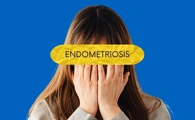

Eating disorders (EDs), such as bulimia nervosa and especially anorexia nervosa, affect female fertility.
Currently, eating disorders are steadily increasing in developed countries, so it is foreseeable that this high incidence among the adolescent population will have an impact on the infertile female population in the short and medium term.
It is estimated that more than 15% of people of reproductive age have problems conceiving, and although eating disorders are not among the main causes, it is important to pay special attention to them because of the seriousness of their consequences.
Most Common Eating Disorders (EDs)
Below we define what we mean by infertility, anorexia and bulimia:
Infertility
According to the World Health Organization, infertility is a disease of the reproductive system defined as the inability to achieve a clinical pregnancy after 12 months or more of regular, unprotected sexual intercourse.
Anorexia Nervosa
Based on the diagnostic criteria of the Diagnostic and Statistical Manual of Mental Disorders (DSM-5) of the American Psychiatric Association (APA), anorexia involves restriction of food intake relative to requirements, leading to a significantly low body weight in relation to age, sex, developmental trajectory and physical health.
A person with anorexia experiences an intense fear of gaining weight or becoming fat, even when underweight, and shows a distorted perception of their own body weight or shape.
Bulimia Nervosa
According to DSM-5 criteria, bulimia nervosa is characterized by recurrent episodes of binge eating and compensatory behaviors to prevent weight gain (such as self-induced vomiting, misuse of laxatives, diuretics or other medications, fasting or excessive exercise).
There is a sense of lack of control over eating during binge episodes. Self-evaluation is unduly influenced by body shape and weight.
Women with bulimia may be at greater risk during pregnancy because of inadequate and unhealthy nutrition, although because they typically maintain a normal weight, they tend to have fewer difficulties conceiving than women with anorexia.
How Can Anorexia Nervosa Affect Fertility?
Women who suffer from anorexia have a Body Mass Index (BMI) below what the World Health Organization considers a healthy weight. Low weight affects fertility, since most women in these circumstances experience amenorrhea (absence of menstruation after puberty), which prevents natural pregnancy.
Linked to this point, the hormones that regulate the menstrual cycle are steroid hormones, meaning they require a certain level of body fat to be produced. If the minimum level of fat is not present, the hormones that influence the menstrual cycle — and therefore reproduction — cannot be synthesized.
In underweight individuals, leptin is also decreased. Leptin is a hormone directly related to the neuroendocrine adaptation to hunger. It regulates the hypothalamic–pituitary–gonadal axis, which is responsible for secreting most reproductive hormones. In women with low energy levels due to malnutrition, leptin prioritizes that limited energy for vital actions, among which reproduction is not included.
Risks During Pregnancy and Postpartum for People With Eating Disorders
People with eating disorders have a higher risk of complications during pregnancy and childbirth, such as preeclampsia, gestational diabetes, placental abruption, reduced amniotic fluid, cesarean section, babies with low birth weight, and low APGAR scores.
In addition, during pregnancy and postpartum, there is a higher risk of relapse of anorexia nervosa due to changes in the female figure, and an increased risk of postpartum depression in the case of bulimia.
Overall, women with eating disorders have a higher rate of premature cessation of breastfeeding (before 6 months).
Various studies show that women with eating disorders are at greater risk of having children (especially daughters) who develop an eating disorder. From birth, these mothers may display certain behaviors that favor the development of an eating disorder, such as:
- Strict control over their children’s food intake
- Restrictive eating behaviors and monotonous diets
- Excessive concern about their own body image and that of their children, with low self-esteem
- Criticism of their children’s body shape
- Emotional distancing in bonding with their children
- Strong feelings of guilt and shame related to their role as mothers
For this reason, healthcare professionals should alert women who plan to become pregnant but have not yet overcome their eating disorder to these circumstances.
Book a free consultationDo you have any questions or need more information?
At Fertility Madrid, we specialise in treatments such as egg donation, in vitro fertilisation and artificial insemination, among others.
Please do not hesitate to contact our professionals at our fertility clinic and they will answer all your questions without obligation.




